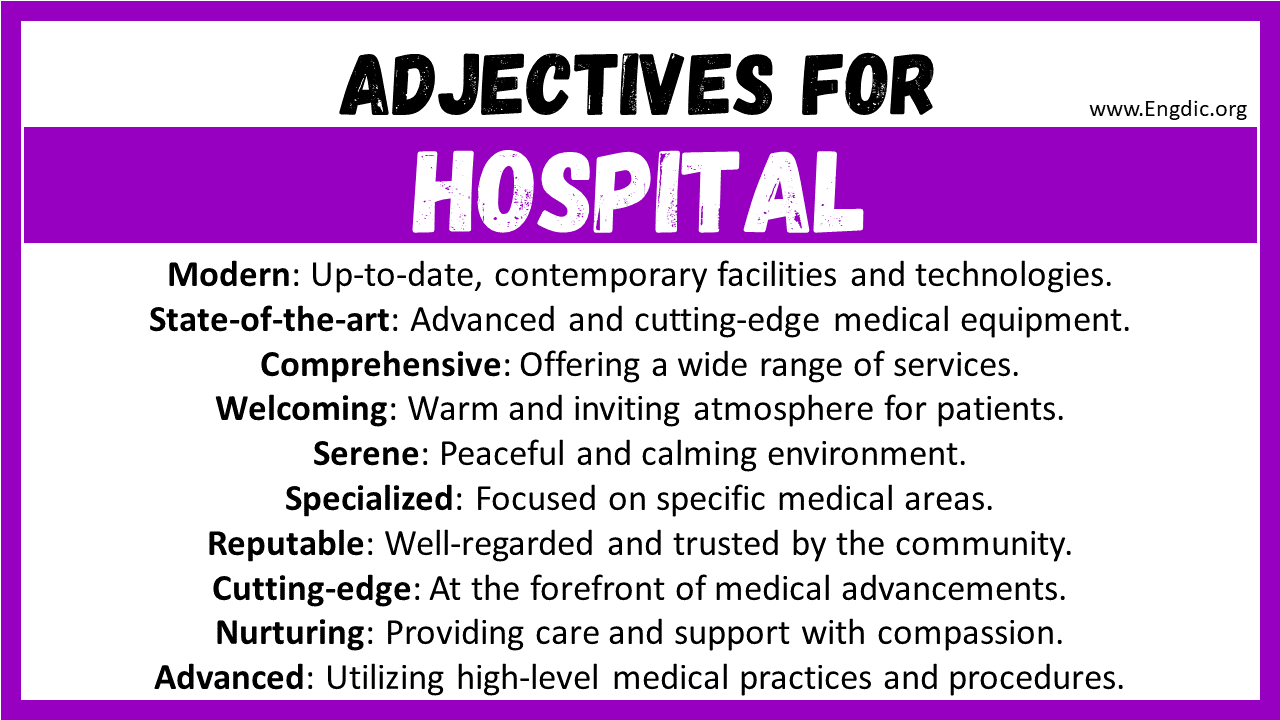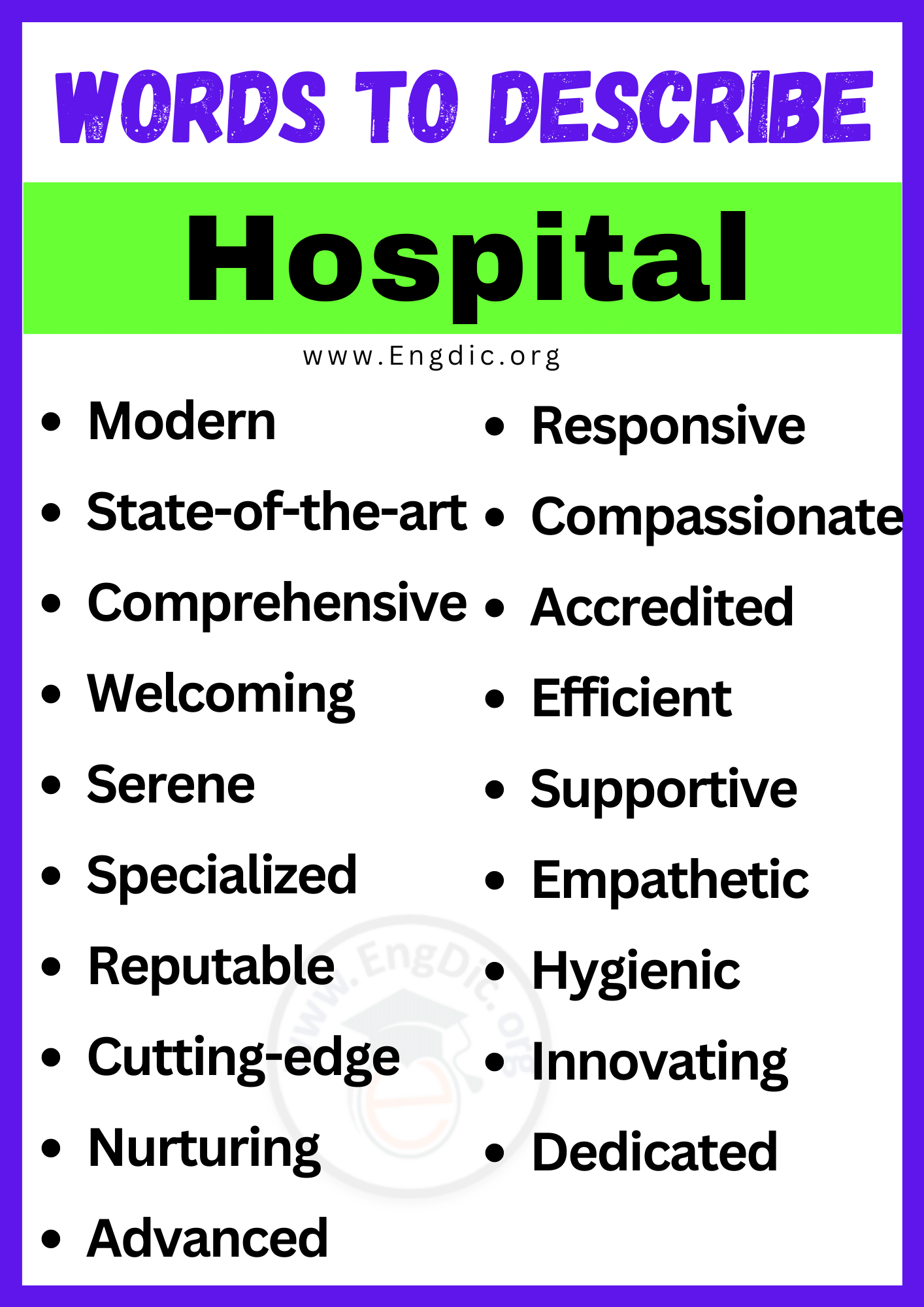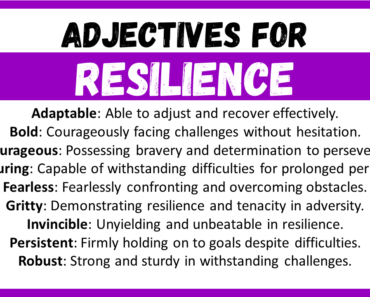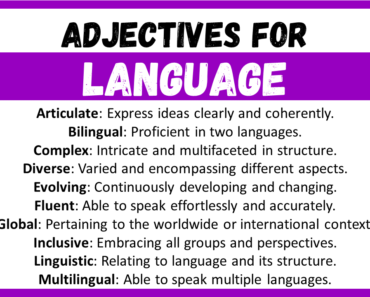A hospital is a place where people receive medical care and treatment. Often, it becomes challenging to encompass the myriad of emotions and experiences that hospitals evoke, but certain words truly capture their essence. From bustling corridors filled with dedicated healthcare professionals to the sense of hope and healing that permeates the air, we will explore a curated selection of words that beautifully describe the profound nature of hospitals.
Join us as we delve into the diverse tapestry of feelings tied to these vital institutions.
Adjectives for Hospital
Here are the 20 Most Popular adjectives for hospital:
- Modern
- State-of-the-art
- Comprehensive
- Welcoming
- Serene
- Specialized
- Reputable
- Cutting-edge
- Nurturing
- Advanced
- Responsive
- Compassionate
- Accredited
- Multidisciplinary
- Efficient
- Supportive
- Empathetic
- Hygienic
- Innovating
- Dedicated
Adjectives for Hospital Bed:
- Comfortable
- Adjustable
- Clean
- Sturdy
- Spacious
- Soft
- Modern
- Supportive
- Hygienic
- Ergonomic
Adjectives for Good Hospital:
- Excellent
- Efficient
- Compassionate
- Caring
- Well-equipped
- Professional
- Reliable
- Attentive
- Skilled
- Clean
Words to Describe Hospital with Meanings
- Modern: Up-to-date, contemporary facilities and technologies.
- State-of-the-art: Advanced and cutting-edge medical equipment.
- Comprehensive: Offering a wide range of services.
- Welcoming: Warm and inviting atmosphere for patients.
- Serene: Peaceful and calming environment.
- Specialized: Focused on specific medical areas.
- Reputable: Well-regarded and trusted by the community.
- Cutting-edge: At the forefront of medical advancements.
- Nurturing: Providing care and support with compassion.
- Advanced: Utilizing high-level medical practices and procedures.
- Responsive: Quick to address patient needs and concerns.
- Compassionate: Showing empathy and understanding towards patients.
- Accredited: Officially recognized and approved by authorities.
- Multidisciplinary: Incorporating various medical disciplines and specialties.
- Efficient: Operating with minimal waste and maximum productivity.
- Supportive: Providing aid and assistance to patients and families.
- Empathetic: Understanding and sharing patients’ emotions and experiences.
- Hygienic: Maintaining cleanliness and sanitation standards.
- Innovating: Embracing new ideas and improvements in healthcare.
- Dedicated: Committed to deli
Example Sentences for Hospital Adjectives
- The hospital’s modern facilities impressed the patients.
- They invested in state-of-the-art medical equipment.
- The hospital offers comprehensive healthcare services.
- The waiting area has a welcoming ambiance.
- Patients find the hospital environment serene and calming.
- The hospital is known for its specialized treatment programs.
- It is a reputable institution with experienced staff.
- They use cutting-edge technology for surgeries.
- Nurses provide nurturing care to patients.
- The hospital has an advanced research department.
- The hospital staff is responsive to patient needs.
- Doctors are known for their compassionate bedside manner.
- It is an accredited hospital with high standards.
- The hospital has a multidisciplinary team for complex cases.
- The hospital’s processes are efficient and well-organized.
- The staff is supportive of patients’ emotional needs.
- The doctors are empathetic and understanding with patients.
- They maintain a hygienic environment to prevent infections.
- The hospital is always innovating with new treatments.
- The hospital’s success is due to its dedicated staff.
Explore More Words:
FAQ’s
How to describe a hospital in writing?
To describe a hospital, use vivid language to depict its modern facilities, compassionate staff, and the nurturing environment that fosters healing.
Why is it called a hospital?
The term “hospital” is derived from the Latin word “hospitium,” which means a place of hospitality and care for the sick and wounded.
What is the role of a nurse in a hospital?
Nurses play a vital role in hospitals, providing patient care, administering medications, monitoring vital signs, and offering emotional support to patients and their families.








